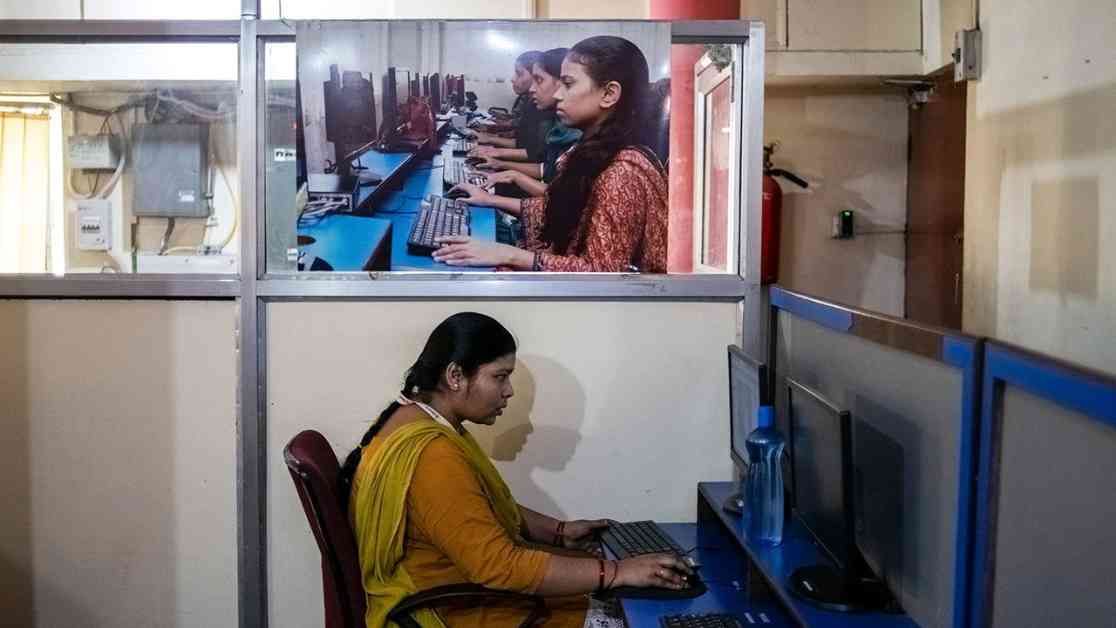The Impact of Chatbots on India’s IT Sector: A Comprehensive Analysis
The Indian information-technology (IT) sector is facing a significant transformation, driven by the rise of artificial intelligence (AI) technologies like ChatGPT. This shift has sparked debates about the future of India’s outsourcing giants, including Tata Consultancy Services (TCS) and Infosys, as they navigate the rapidly evolving landscape of AI integration.
Critical Role of AI in Outsourcing
As AI technology continues to advance, the question arises – what is the ideal job to outsource to artificial intelligence? While AIs struggle with human interactions, they excel in tasks involving numbers and symbols, such as writing computer code. This aligns perfectly with the core functions of India’s IT companies, known for their expertise in data manipulation and IT services.
Last year, seven major IT firms, including TCS and Infosys, collectively downsized their workforce by 75,000 employees, citing broader tech sector slowdowns. Despite claims that AI is an opportunity rather than a threat, the impact of AI on the industry cannot be overlooked.
Economic Implications of AI Integration
The business services sector is a linchpin of India’s economy, employing 5 million people and contributing 7% of GDP. Simple services like call centers and IT services play a crucial role in generating nearly a quarter of the country’s total exports. However, the advent of AI poses a potential threat to these jobs, especially those involving routine tasks like data processing and customer service.
According to Capital Economics, a complete overhaul by AI could shave off nearly one percentage point of India’s annual GDP growth, highlighting the urgency for strategic adaptation within the IT sector. As AI tools like chatbots and image-creation models become more prevalent, the landscape of job roles in IT is rapidly evolving.
Future Prospects for Indian IT Companies
Despite the disruptive effects of AI, Indian IT giants are gearing up to harness the power of these technologies to their advantage. By leveraging AI to enhance productivity and streamline processes, firms like Infosys are already witnessing significant reductions in application development times.
Moreover, the deployment of AI in client organizations presents a new frontier of opportunities for Indian IT companies. The demand for AI-related skills is on the rise, with Bangalore emerging as a hub for AI job postings. By developing cutting-edge AI tools and solutions, Indian IT firms are positioning themselves as leaders in the global AI market.
Nandan Nilekani, chairman and co-founder of Infosys, emphasizes the importance of adapting to the “velocity of experience” in the AI era. As clients seek innovative solutions to diverse challenges, companies like Infosys are well-equipped to address evolving needs and stay ahead of the curve.
Looking Ahead
As India’s IT sector braces for the AI revolution, the key lies in embracing change and leveraging AI technologies to drive innovation and growth. By reimagining traditional roles and adapting to the evolving demands of the digital age, Indian IT companies have the potential to not only survive but thrive in the era of AI.
The road ahead may be challenging, but with strategic investments in AI capabilities and a focus on delivering value-added services, India’s IT sector is poised to emerge stronger and more resilient in the face of technological disruptions. The journey towards AI integration may be daunting, but the possibilities it holds for the future of India’s IT industry are boundless.



















